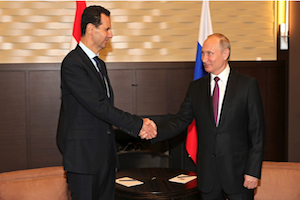The Meaning and End of Turkey-Russia Cooperation in Syria
By Micha’el Tanchum
February 20, 2020
The Turkey-Russia relationship is in the midst of a major reset. The outbreak of hostilities in Syria's Idlib province has left thirteen Turkish soldiers dead and seven Turkish military posts under siege by Russian-backed Syrian government forces. Prior policy convergences between Turkey and Russia had raised speculation about the prospect of a Turkish-Russian strategic partnership dominating the security architecture on Europe's southern borders. However, Ankara seems to have overplayed its hand in what is fundamentally a transactional relationship with Moscow. A total rupture in Turkish-Russian cooperation is unlikely, even in the event of a Turkish counter-offensive. However, Russia's reduced cooperation with Turkey will likely result in Russia's further development of more robust strategic partnerships with Turkey's rivals – the United Arab Emirates and Saudi Arabia.
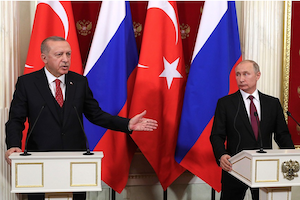
After Ten Days that Shook Syria: Turkey's Dependence on Russia Reaffirmed
By Cengiz Çandar
November 5, 2019
Turkey’s intrusion into northeastern Syria will have far-reaching consequences for Turkey, the balance of power in Syria and in the Middle East. The Rojava invasion also leaves a durable imprint on international relations at a global scale. It has left the United States in a weaker position, while Russia has strengthened its grip on Syria. Turkey’s dependence on Russia has been reaffirmed. The Russo-Turkish partnership in Syria may not prove long-lived since Moscow and Ankara have different, indeed fundamentally irreconcilable political priorities. It is unlikely that Turkey, dependent on the acquiescence of Russia and with an ailing economy, will be able to establish a permanent military presence on Syrian territory.
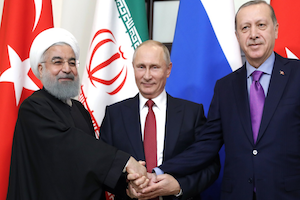
Turkey's Russia Affair
By Suat Kınıklıoğlu
September 23, 2019
Turkey’s deepening partnership with Russia needs to be situated within a larger context. Turkey is moving closer toward Russia at a time when the West is beset by considerable turmoil. Seen from Ankara, both Europe and the U.S. increasingly look weaker, divided and ideologically adrift. Above all, though, Ankara’s pivot toward Moscow is driven by the domestic political needs of the Turkish leadership. The primary benefit of deepening the relationship with Russia lies in the legitimization of the current authoritarian rule. Yet ultimately the endeavor to reorient Turkey toward Russia and Eurasia faces the challenge that Turkey’s democratic tradition poses.
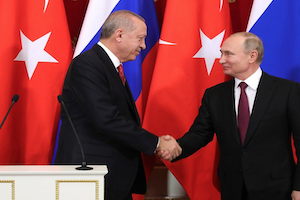
Turkey's Purchase and the Path to a Post-American Alliance Architecture
By Micha’el Tanchum
April 22, 2019
Turkey's taking delivery of the Russian S-400 air and missile defense system in July 2019 is a momentous strategic step. It reflects the realignment of Ankara's interests away from Washington and toward Moscow. Washington's planned punitive measures could precipitate Turkey’s exit from the NATO alliance. Unless concessions are forthcoming from the U.S. to induce Turkey to reciprocate by finding a face-saving way out of installing the S-400 system, a strategic divorce may not be averted.
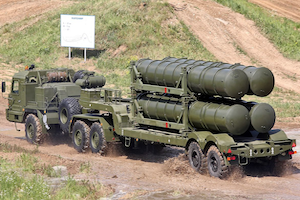
The Adana Protocol Re-Emerges as Russia and Arab Nations Align Against Turkey's Syrian Intervention
By Micha’el Tanchum
January 24, 2019
The December 19, 2018 announcement of the withdrawal of American forces from northeastern Syria was heralded as Washington's concession to Turkey's President Recep Tayyip Erdoğan, giving him a green light for the eradication of the PKK-affiliated Kurdish forces of the People's Protection Units (YPG). However, Turkey's planned intervention to create a 'safe zone' in northern Syria east of the Euphrates river has been complicated by the recent reconciliation of key Arab nations with the regime of Bashar al-Assad to oppose Turkish ambitions. The Arab alignment with Russia's opposition to Turkey's intervention weakened Erdoğan's bargaining position in his January 23, 2019 meeting in Moscow with Russian President Vladimir Putin and may force Turkey to accept alternative arrangements for the safe zone based on the 1998 Adana Protocol between Ankara and Damascus.
